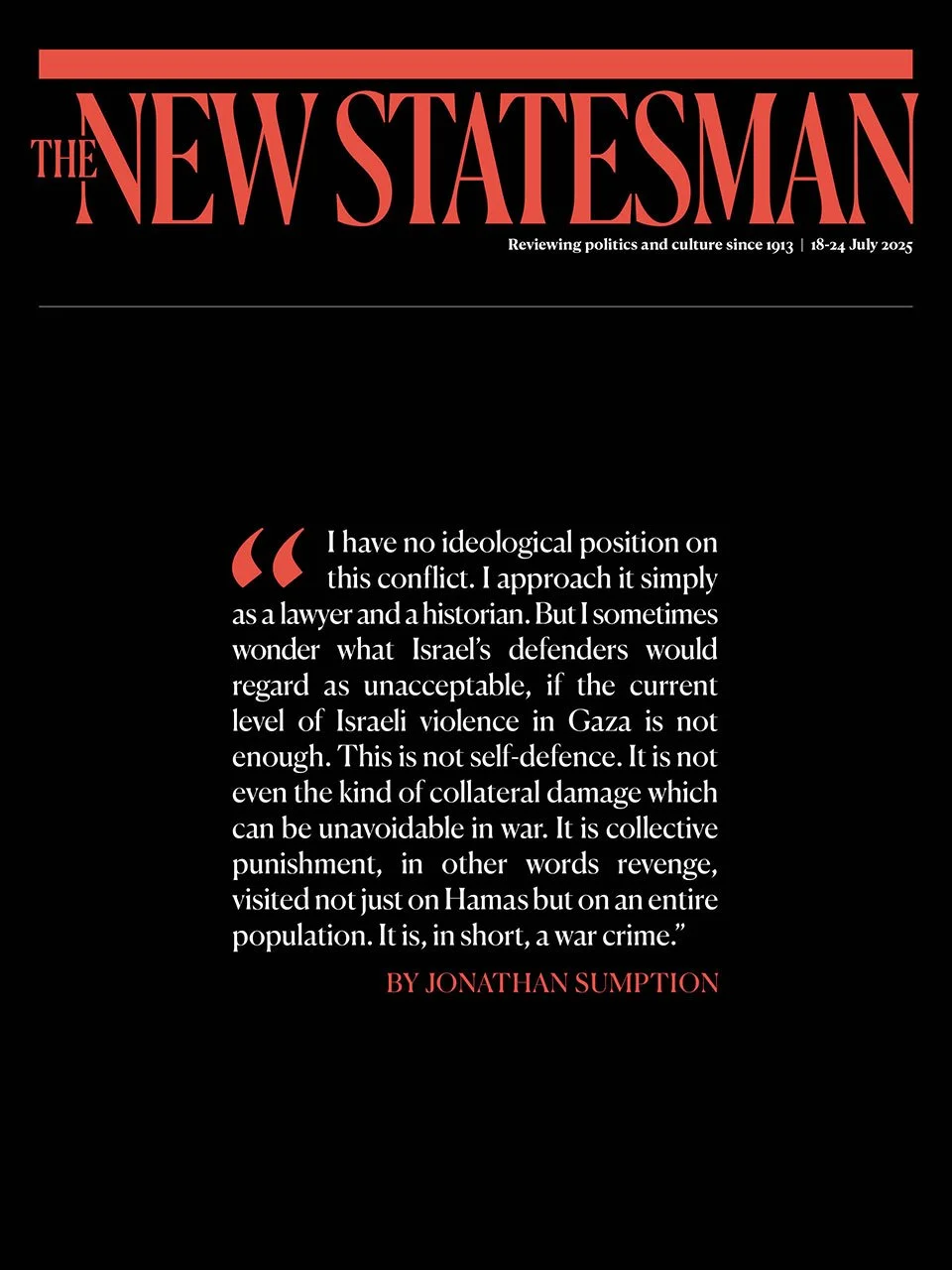Legal and Humanitarian Reflections on the Gaza Crisis
In a recent essay published by The New Statesman, legal historian and former UK Supreme Court justice Jonathan Sumption offers a powerful critique of Israel's ongoing military actions in Gaza, situating the conflict within the frameworks of international law and humanitarian standards. Sumption states that his analysis is not driven by ideology, but by the standards of legal and historical inquiry.
He begins by highlighting that Operation "Gideon’s Chariots" — launched by Israel in May 2025 — demonstrates a pattern of collective punishment against Gaza’s civilian population. While Israel claims to be targeting Hamas, Sumption argues that the scale and manner of its military actions go far beyond proportional self-defense and amount to collective retribution.
International Law and War Crimes
Sumption outlines key provisions of international humanitarian law, particularly the Geneva Conventions, which prohibit targeting civilian infrastructure, displacing populations, and using starvation as a method of warfare. He asserts that Israeli operations in Gaza have violated several of these provisions. The destruction of hospitals, residential buildings, water systems, and the restriction of humanitarian aid are all cited as breaches of established legal norms.
He also notes that the International Criminal Court has issued arrest warrants for Israeli officials and that international bodies, including the United Nations and several Western governments, have openly criticized the conduct of the Israeli military.
Genocide and Displacement
One of the central questions in Sumption’s essay is whether Israel’s actions amount to genocide. While genocide requires the intent to destroy a group in whole or in part, Sumption points to statements made by senior Israeli officials advocating for the displacement of Palestinians as potential evidence of such intent. These, he argues, are not isolated political remarks but reflect broader government policy, including proposals to build internment camps and displace Gaza’s population to third countries.
According to Sumption, the scale of destruction — with over 57,000 Palestinian deaths reported, most of them women and children — along with deliberate restrictions on aid, signals a campaign not only against Hamas but against the civilian population as a whole.
Consequences and the Future
Sumption warns that such strategies are not only legally indefensible but strategically flawed. He suggests that even if Hamas were to be physically dismantled, its ideology — rooted in the lived experience of oppression — would endure. Lasting peace, he argues, can only be achieved through a political solution that acknowledges the rights and attachments of both Israelis and Palestinians to the land.
The article concludes by rejecting the binary framing of the conflict that equates criticism of Israeli policy with anti-Semitism. Drawing from historical examples and legal precedent, Sumption urges the international community to uphold humanitarian standards universally — whether in Gaza, Ukraine, or elsewhere.

